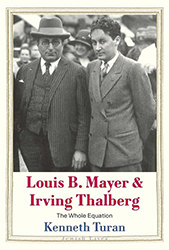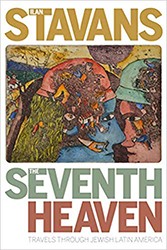Tamara Yajia was born ugly. That’s the first thing the Argentine American writer and comedian tells us in her memoir. Chronicling her life from the very moment she enters the world and through the forty years that follow, Yajia takes us on a ride that feels like a rollercoaster on caffeine: no pauses, no warnings, just a relentless, exhilarating tumble through chaos.
Yajia’s parents met in Paso de los Liebres, an Argentinian frontier town where their families sold goods to Brazilians crossing the border for cheap bargains. They were the only two Jewish families there, and they couldn’t stand each other. Tamara’s grandparents were invasive, intense, lovingly insufferable — all of which, according to Yajia, helps explain why the rest of her life went down the way it did.
Feeling suffocated by their families, and facing Argentina’s collapsing economy in the late ’80s, Yajia’s parents made the decision to immigrate to the United States. Leaving behind Buenos Aires’ crowded streets and fast-spoken Spanish, Tamara’s childhood friendships and her grandmother Rita’s Ashkenazi and Sephardic home cooking, the family found themselves in a motel in the vast sprawl of Los Angeles with no papers and no plans.
Eventually, her parents opened a stand named Sexy Chicken in the food court of a shopping mall. (To this day, malls are Yajia’s favorite kind of place — second only, perhaps, to the stage). Yajia — an extremely smart, creative child, who daydreamed about being in the spotlight — finally began to adapt to this new landscape, language, and life. But then, Sexy Chicken’s sales plummeted, leading to the family’s return to Argentina.
Argentina, her once-beloved land, no longer felt like home. Tamara missed English, her schoolmates, and shopping malls. She fell into a depression, completely unnoticed by her parents, and only found joy when she stepped onto a stage at Hebraica, a Jewish social club, where she performed a borderline-sexual Madonna lip-sync routine in front of an audience of families and old rabbis. She thrived.
From there, she took acting classes, securing her path to becoming the star she was meant to be. By eleven, she was performing in multiple productions, and when the opportunity of a lifetime arrived — a role in a musical TV show that would tour the country with live concerts — another crushing blow came: her parents were broke. It was time to try the US again.
Yajia writes as if she’s unloading years of pain, grief, and hard knocks. There are no decorative flourishes, no comforting conclusions. With sharp, biting prose, she recalls every detail, every tantrum, every embarrassing family moment as if it happened just yesterday.
She switches between describing Buenos Aires’s cultural landmarks, iconic songs and trashy TV shows, as well as filthy Yiddish curses and Argentine insults, to recounting her experience of poverty, the shame of being new to a place, the suffering of starting from scratch again and again. Beneath the tragicomedy, there are underlying themes of migration, mental health, addiction, sex — a landscape of unresolved struggle that goes far beyond being a failed child star.
It’s no surprise that this hilarious, tragic, and brilliantly uncomfortable book is titled Cry for Me, Argentina—a subversion of the iconic Evita musical anthem Don’t Cry for Me, Argentina. Yajia belts her own version at the top of her lungs: Cry because she was forced to leave her country not once but twice. Cry because no one seemed to listen to what she needed. Cry because everything collapses. And when all else fails, she writes, turning pain into laughter, grief into comedy, and trauma into a heady cocktail of sex, drugs, failure, fractured friendships, intense Judaism, family absurdities, mixed languages, and crossed hemispheres. You won’t be able to put it down.
Jessica Ruetter is a writer and the founder of Bibliofilia, an online platform dedicated to Spanish-language literature. Through interviews with Latin American authors and book recommendations, she connects readers across the Hispanic world. She recently graduated from Universidad Torcuato Di Tella in Buenos Aires, Argentina.





